A competitive PPC (Pay Per Click) analysis is all about seeing what your competitors are doing with their paid ads on platforms like Google Ads, so you can do it better. It helps you uncover which keywords they’re spending money on, what their ads and landing pages look like, and how much budget they might be working with.
If you can’t afford to spend a week on a manual analysis or you doubt you have enough experience to do it well, your next best option is a large language model (LLM) like ChatGPT, Claude, or Gemini. All you need to know is where to look for PPC data and a good prompt—this is what I’m going to help you with.
With Ahrefs, you’ll see exactly which keywords your competitors are bidding on, the countries they’re targeting, and what ads and landing pages they use—something you can’t do with Google Keyword Planner.
You’ll also receive estimated daily, weekly, and monthly ad spending to gauge their aggressiveness and spot patterns.
Then, ChatGPT steps in to identify keyword gaps (keywords they bid on but you don’t), pull out key insights from the data, and suggest easy wins you can act on fast. After the analysis, you can even ask it to build out a full PPC action plan, including recommendations for landing pages and better ad copy to boost your performance.
Let’s get started!
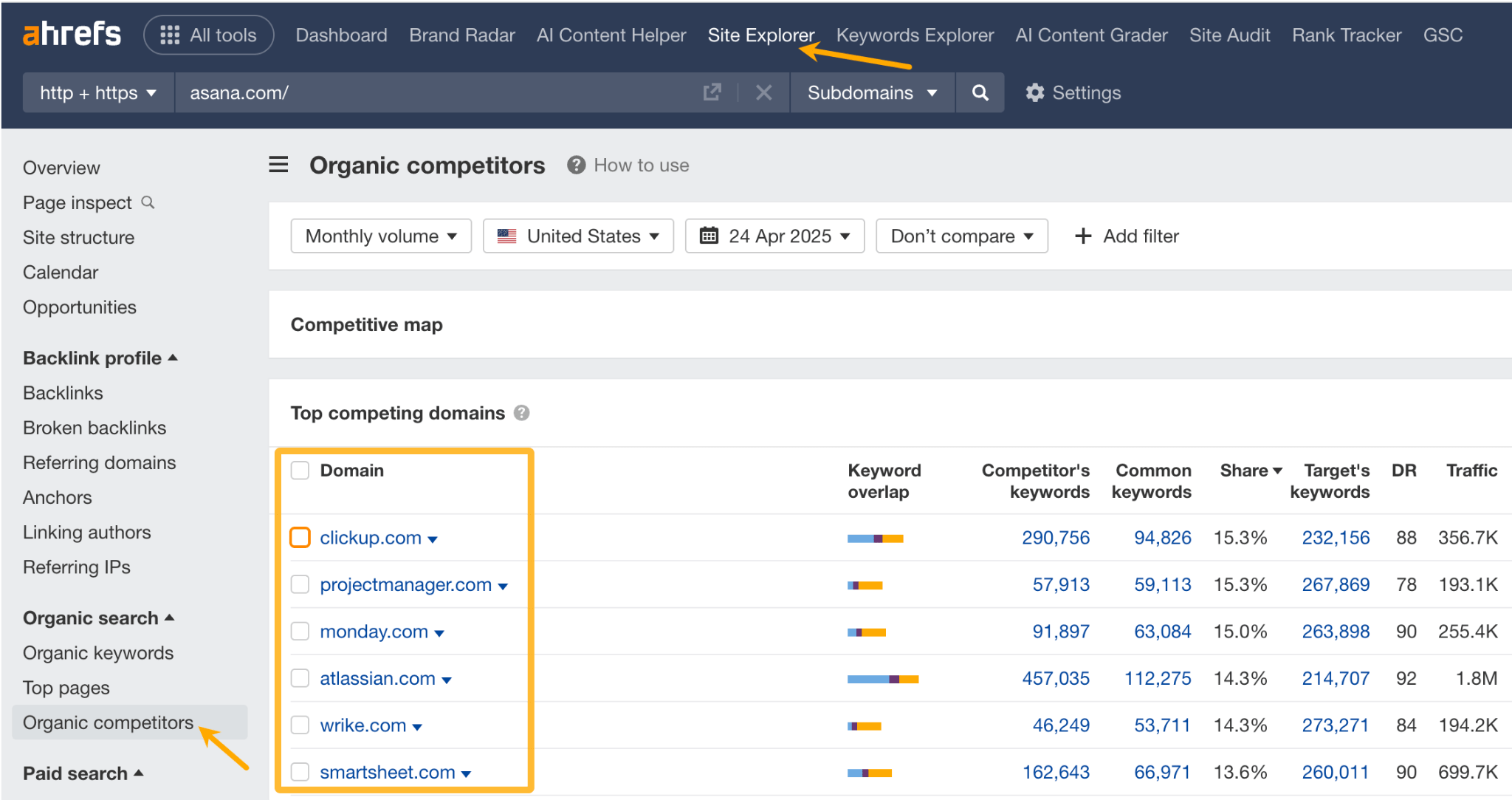
Now, plug in your competitor domains along with yours into Batch Analysis. Export the results.
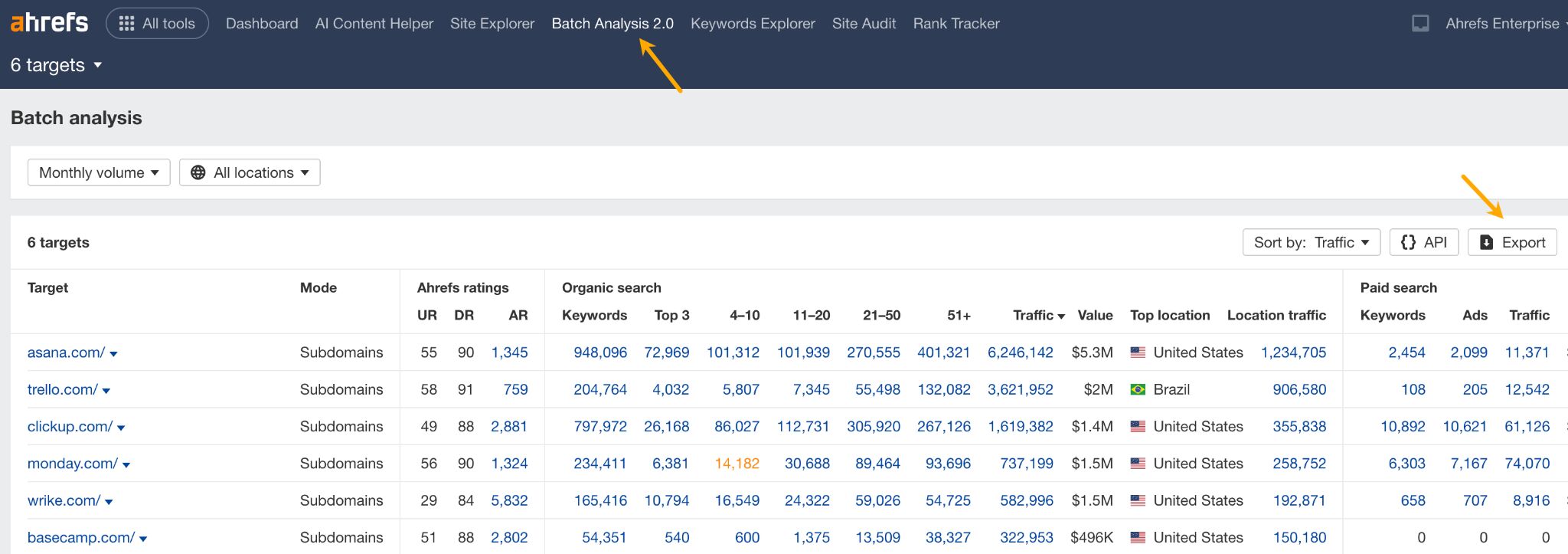
To understand how your competitors use their Google Ads budgets, check the Paid search tab in the Overview report. Look for any spending patterns or strategies that stand out. I recommend doing this step manually rather than relying on AI, since humans are naturally good at recognizing patterns, and AI sometimes struggles with reading data from images with graphs.
For example, looking at this data on average organic traffic spend from Monday, we see their current estimated spend is about $243k—around five times lower than their peak spend in August 2024. Last year, their monthly spend never dropped below $110k, with clear spikes toward the end of the year. Based on this, you can expect them to increase their bids significantly from August to December 2025.
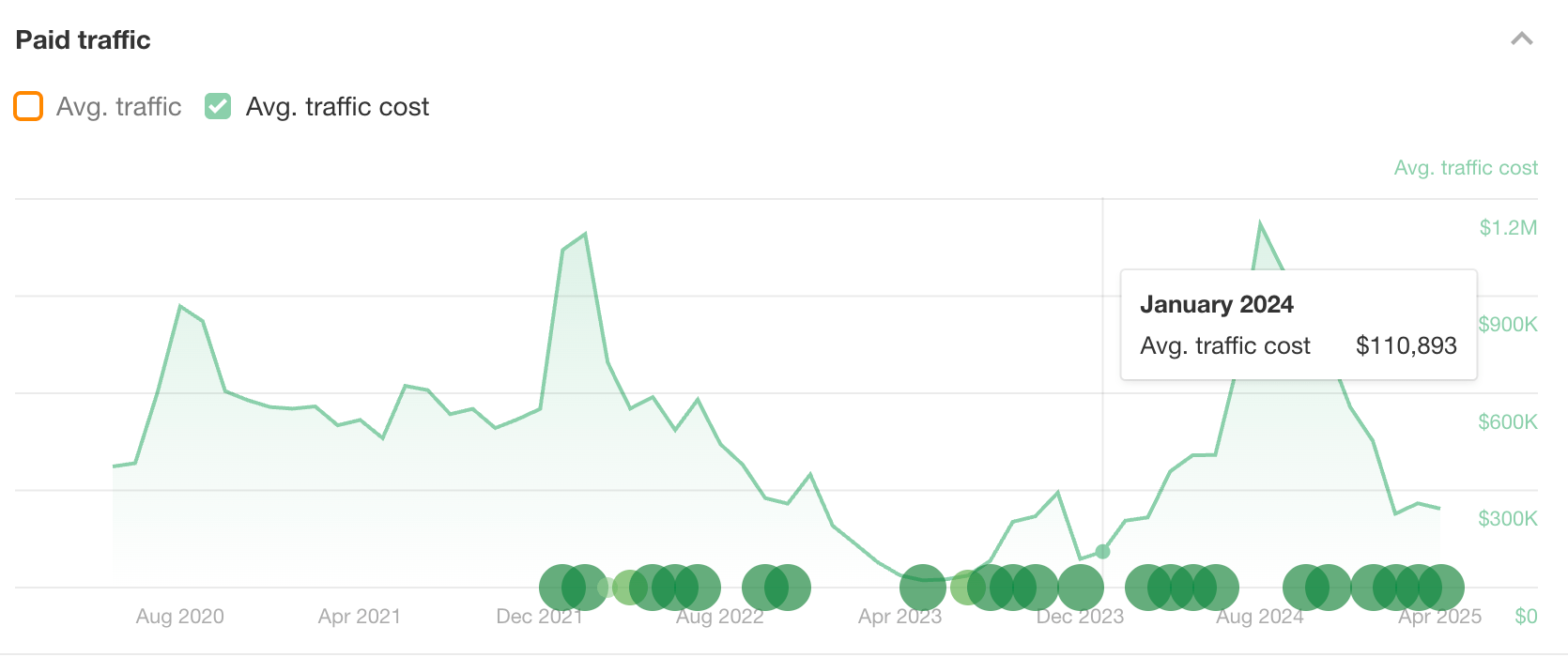
You can jot down your observations as you go and ask ChatGPT to add them to the report later.
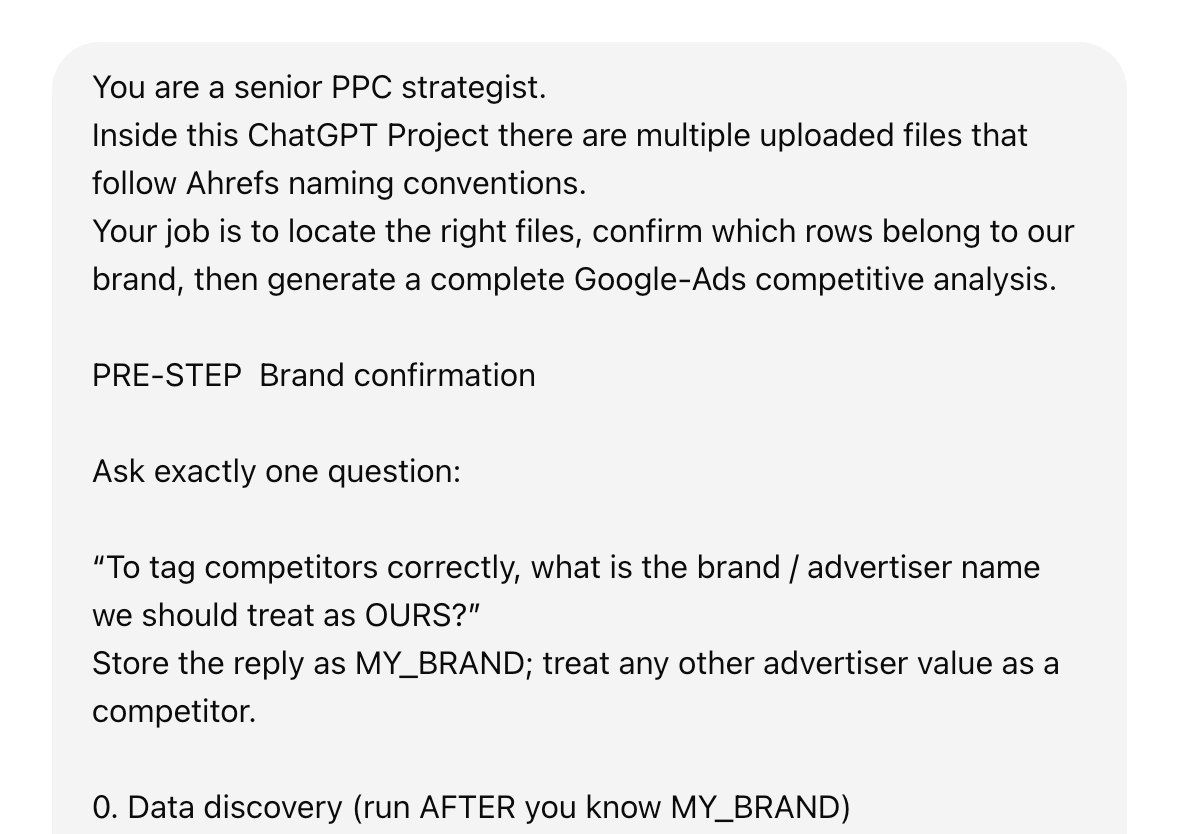
Feel free to ask your LLM any follow-up questions after the analysis is done.
At the time of writing, the project feature isn’t supported in Gemini, but if that’s your favorite LLM, try uploading the file in the chat window or creating a Gem.
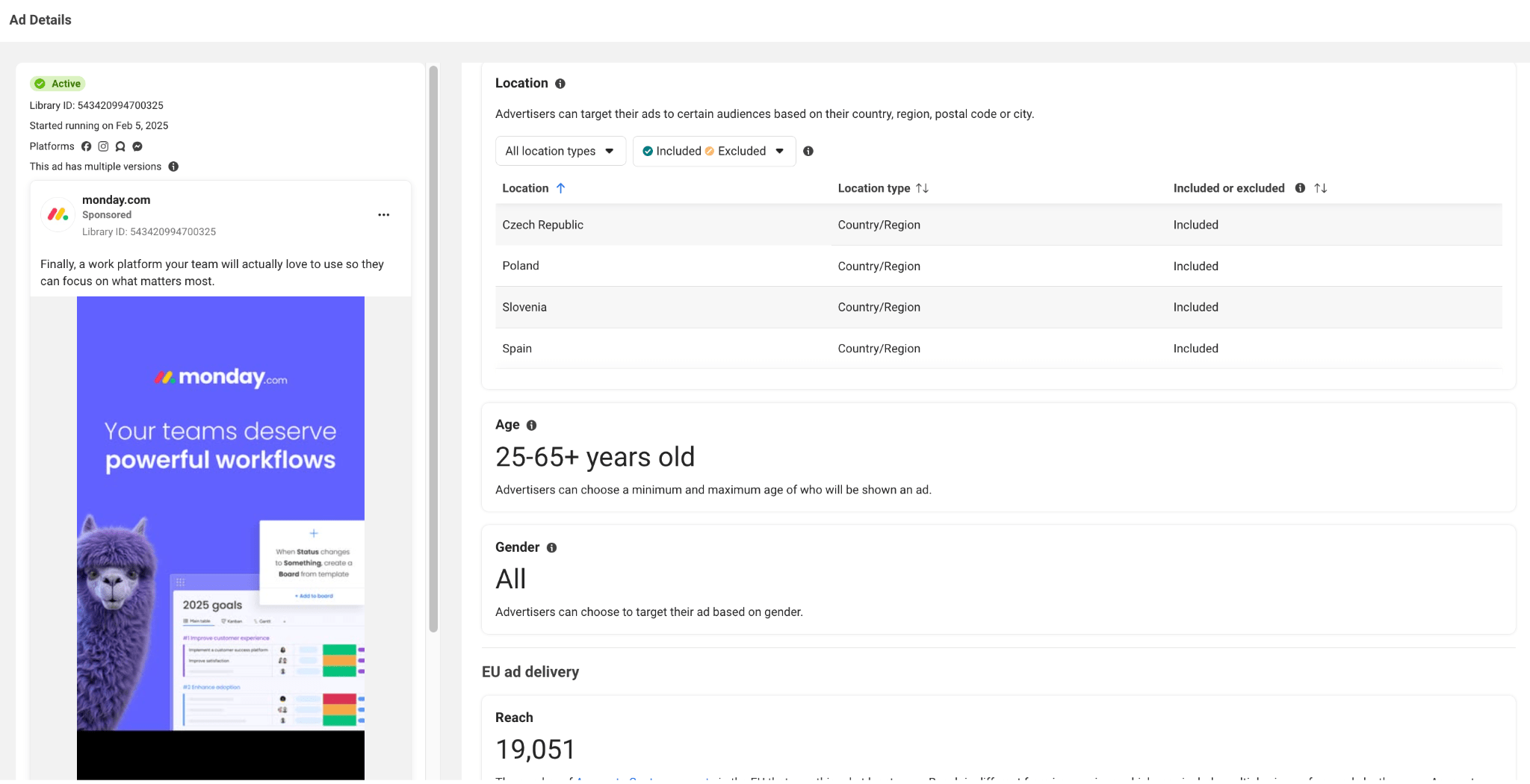
Ad libraries won’t offer much competitor data, but you can still use AI to find patterns among ad creatives. Again, the trick is to save any web page showing competitor ads in PDF format and give it to an LLM asking things like:
- What do these ads promote?
- Group every ad by dominant visual theme (human faces, product UI, icon‑only, illustration, etc.).
- List the focal point of each creative (face, logo, text‑first, CTA button) and rank them by prevalence.
- Extract every headline and overlay text. Cluster them by copy angle (benefit, fear of missing out, time savings, social proof). Which angle is dominant?
- Identify recurring design motifs.
For other display networks, tools like AdBeat or AdClarity can be helpful. For example, AdBeat gives you a quick overview of your competitor’s PPC activity—showing you the types of ads they run most often, which publishers they work with, and even letting you view their ad creatives.
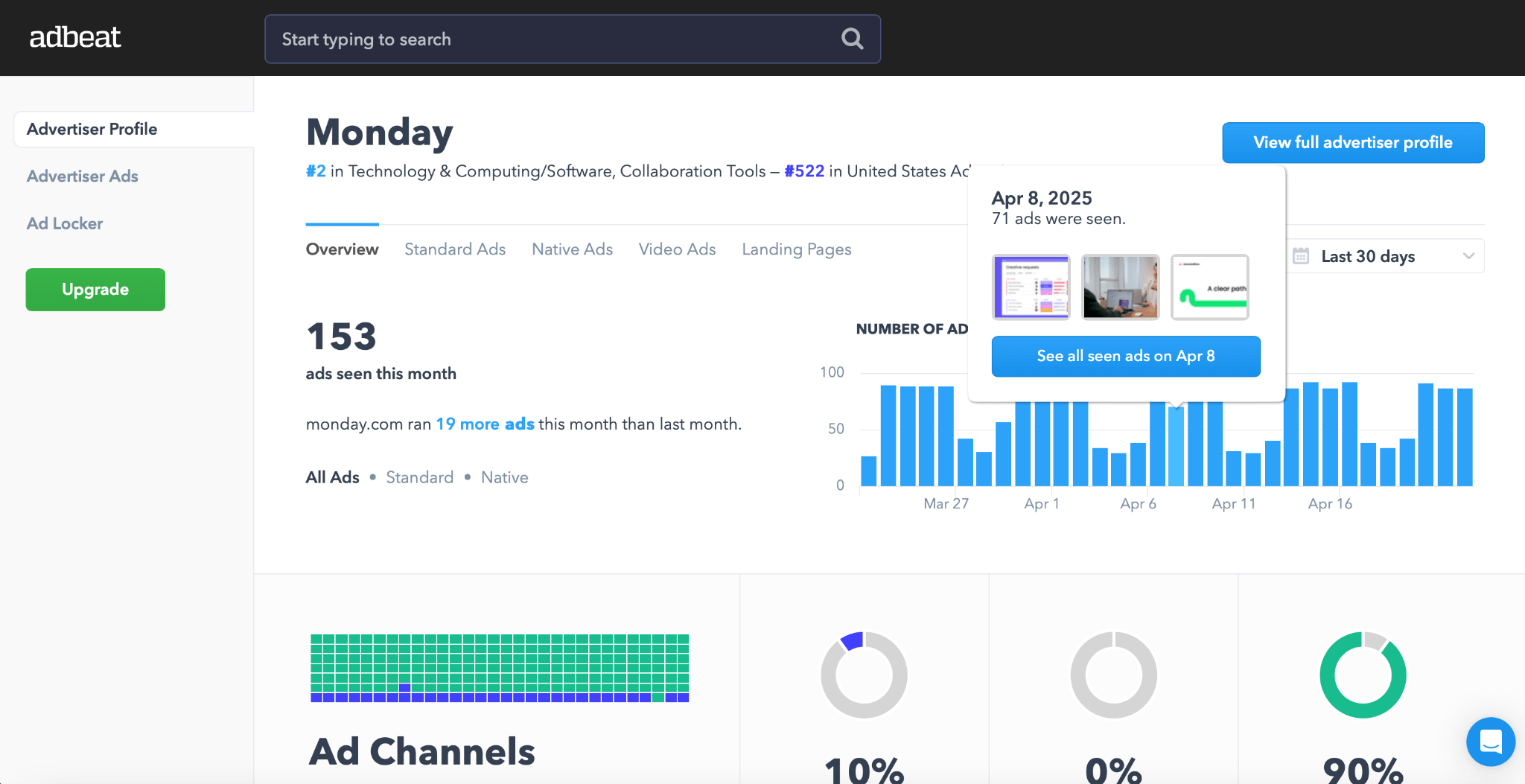
Final thoughts
Because LLMs can rerun analyses in seconds, you have the freedom to experiment wildly. Want to test if competitor headlines using emotional triggers outperform product-focused copy? Just ask. Curious how seasonality impacts their keyword strategy? Rerun your analysis with a fresh prompt.
So go ahead: throw unconventional ideas at the model, iterate rapidly, and discover opportunities you’d never uncover slogging through spreadsheets manually.
Got questions or comments? Find me on LinkedIn.
Similar Posts
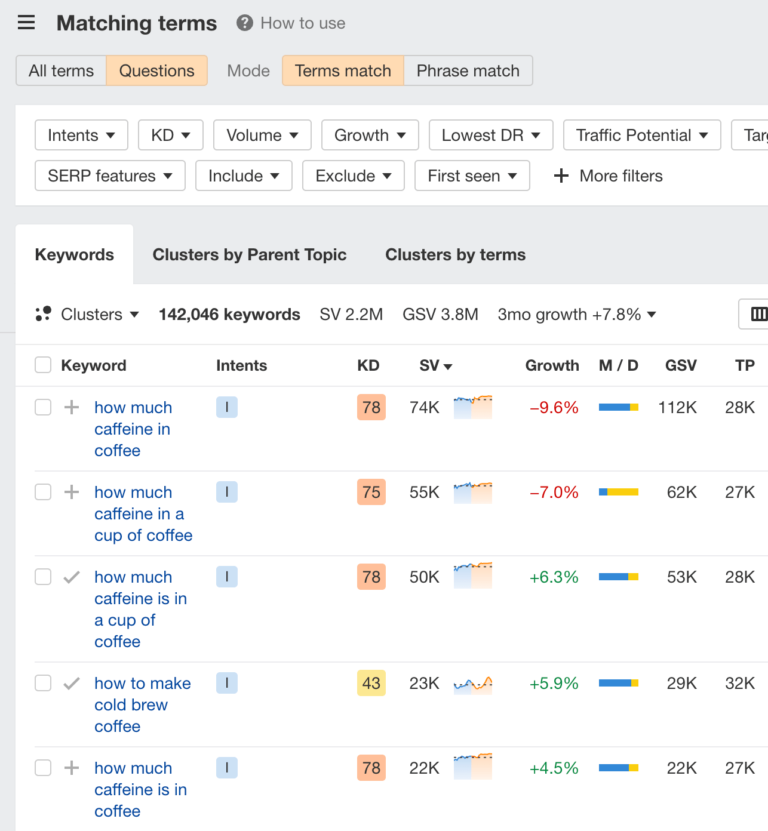
100 Most Asked Questions on Google in 2025
These are the 100 most asked questions on Google, along with their monthly search volumes. Keywords Explorer Enter a relevant keyword Go to the Matching terms report Toggle the Questions tab For example, if you search for “coffee”, you can see 142,000 questions which you could potentially create content for. Want to do keyword research for your site?…
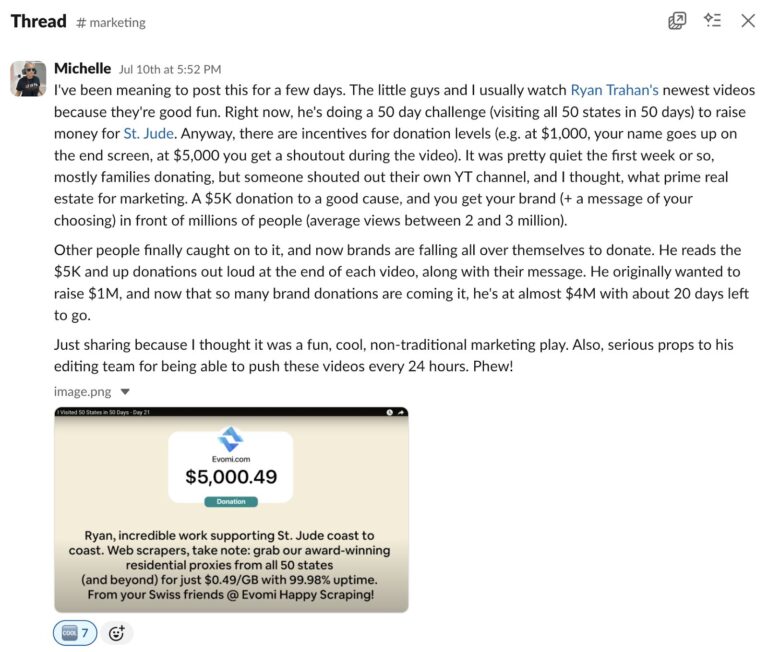
The Genius Marketing Strategy in Ryan Trahan’s 50 States Challenge
It started with a $100,000 donation, ended with $11 million raised for charity, and somewhere along the way, an electric bike brand earned 235M+ impressions and $7M worth of brand awareness. Ahrefs’ Community Manager, Michelle Lindner, shared Ryan Trahan’s “50 States Challenge” in our #Marketing Slack channel after watching it with her kids. She thought…
What’s New in the Drupal CMS User Guide: June 2025 Update
Since the launch of the Drupal CMS earlier this year, we’ve been hard at work documenting everything you need to build and maintain a site using this new, streamlined Drupal experience. Our goal is to make the Drupal CMS User Guide a go-to reference for site builders of all experience levels — especially those coming…
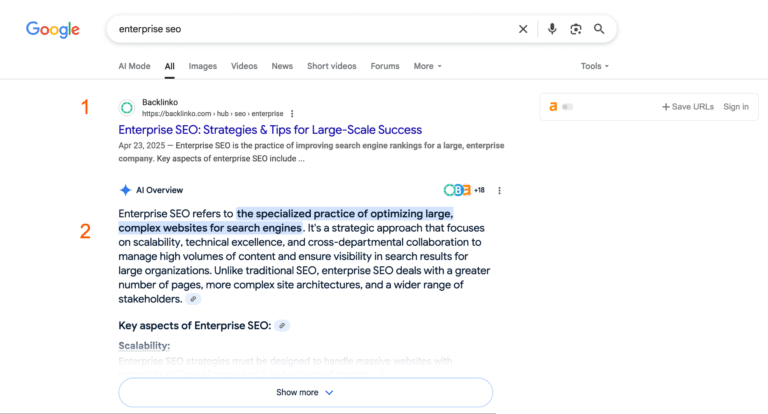
8.64% of AI Overviews Appear Outside Position #1 (And as Low as Position #6)
Get the week’s best marketing content AI Overviews aren’t always in the first position in the SERPs. For example, here’s an AI Overview in the 2nd position. See where AI Overviews appear outside of position 1 You can use the SERP features filter along with the Position filter to find some of the AI Overviews outside…
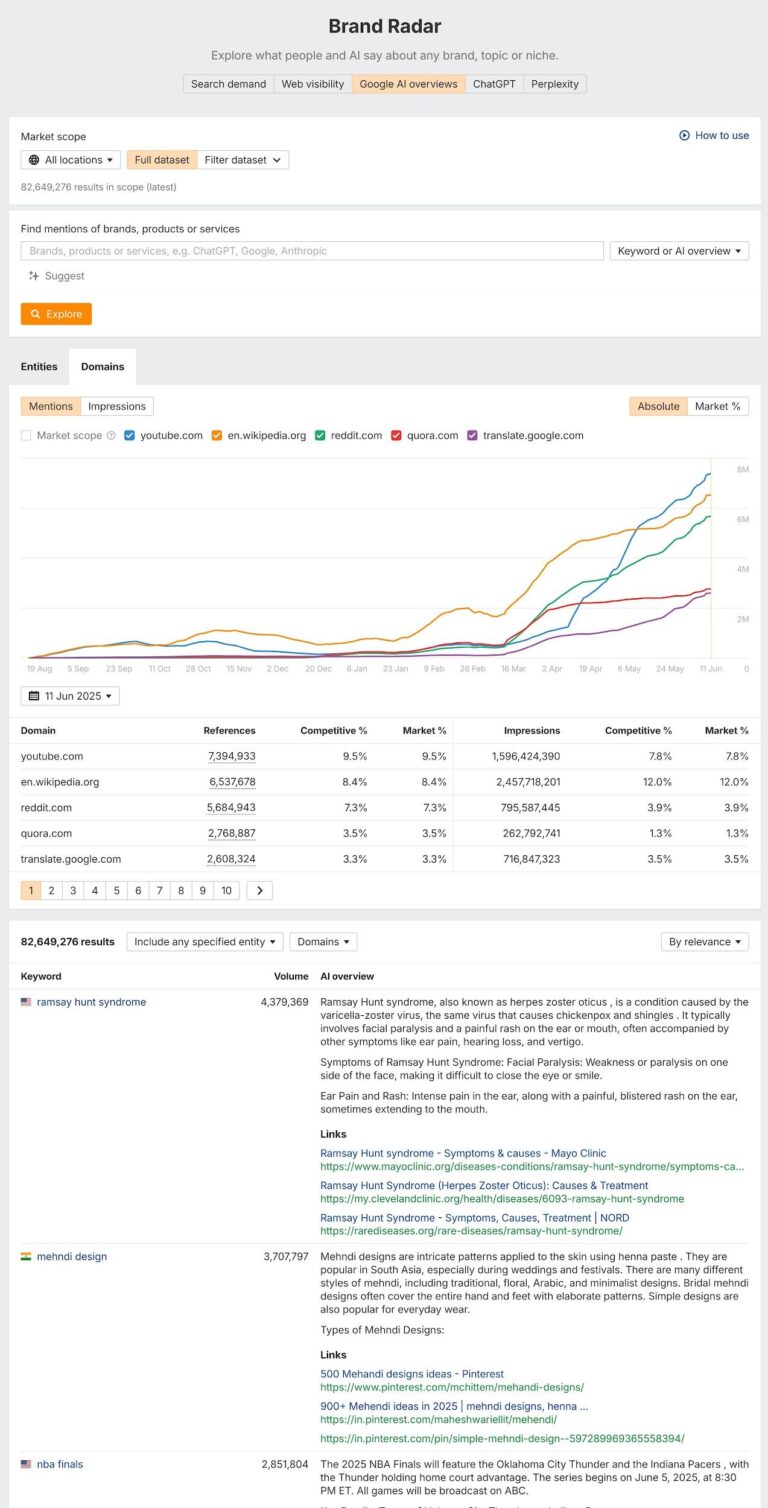
Domain-Level Link Metrics May Not Be Good Predictors of AI Search Mentions
Going into this study, I suspected that domain-level link metrics would not be a good predictor for mentions. I was expecting Google AI Overviews to show more of a correlation since they may use some of the traditional search signals, whereas the other systems may not. For traditional search, usually the page-level metrics are more…
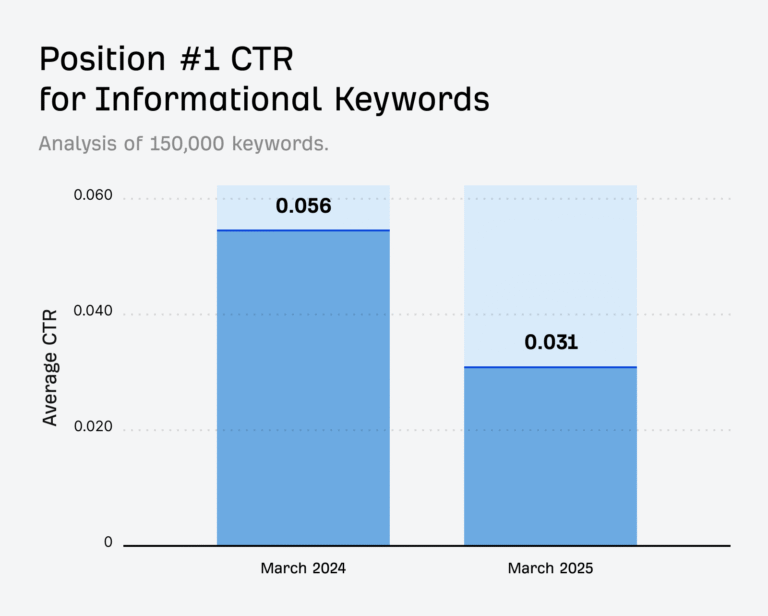
AI’s Impact on SEO: 13 Things That Changed, 4 Things That Stayed The Same
AI assistants like ChatGPT, Gemini, and Perplexity have become the new places people turn to for answers—handling millions of prompts every day. Even Google now uses AI to generate summaries right at the top of search results. This shift happened fast. In 2024, AI Overviews rolled out to millions of searches, ChatGPT climbed into the…
